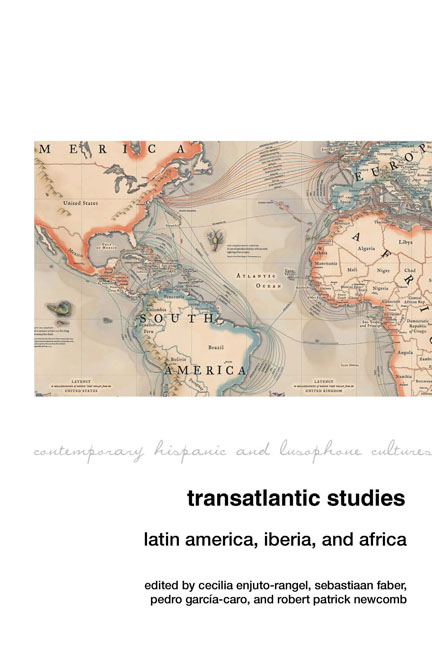Book contents
- Frontmatter
- Contents
- Introduction: Transatlantic Studies: Staking Out the Field
- Transatlantic Methodologies
- Transatlantic Linguistic Debates
- Transatlantic Displacement
- Transatlantic Memory
- Transatlantic Postcolonial Affinities
- Transatlantic Influence
- Epilogue: The Futureâif There Is OneâIs Transatlantic
- Index
12 - “Across the Waves”: The Luso-Brazilian Republic of Letters at the Fin de Siècle
- Frontmatter
- Contents
- Introduction: Transatlantic Studies: Staking Out the Field
- Transatlantic Methodologies
- Transatlantic Linguistic Debates
- Transatlantic Displacement
- Transatlantic Memory
- Transatlantic Postcolonial Affinities
- Transatlantic Influence
- Epilogue: The Futureâif There Is OneâIs Transatlantic
- Index
Summary
In The World Republic of Letters (1999), Pascale Casanova advocates a comparative literary-interpretive method that would “try to detect similarities and dissimilarities between [texts] and look for recurring patterns.” The identification of patterns across “world literary space,” she writes, brings “literary frontiers […] into view that are independent of political boundaries” (Pascale Casanova 1999: 3–4). In her study, Casanova questions the nation-state as the default unit of literary analysis and challenges the coherence of national literary traditions. Language, however, remains important in determining writers’ membership in broader “linguistic-cultural areas” coinciding with transoceanic spaces described by fraught terms such as francophonie, hispanidad, and lusofonia (Pascale Casanova 1999: 117).
Fernando Pessoa's oft-quoted declaration, “minha patria é a lingua portuguesa” [my country is the Portuguese language] typifies the sentiment that would give rise to what, paraphrasing Casanova, we might term the “Luso-Brazilian Republic of Letters.” This refers both to the “space” of this supranational, Portuguese-speaking imagined community, and to the Luso-Brazilian literary intellectuals who attempted to conjure it into being. Beginning with Brazil's independence (1822), generations of Portuguesespeaking writers on both sides of the Atlantic have affirmed the existence of this “republic,” which attempts through language, literature, and culture to reassert or compensate for the political unity lost with the end of the Luso-Brazilian empire. Analysis of transatlantic Lusophone ties during the post-1822 period tends to focus on the 1950s–60s, during which Portugal's authoritarian Estado Novo [New State] appropriated Brazilian sociologist Gilberto Freyre's notion of lusotropicalismo to defend its continued colonial presence in Africa, or the post-1974 period, marked by Portuguese decolonization and the rearticulation of official and informal ties between the PALOPs (Paises de Língua Oficial Portuguesa, countries whose official language is Portuguese).
The fin de siècle does not immediately spring to mind as a period sympathetic to supranational Luso-Brazilian literary and cultural bonds.
- Type
- Chapter
- Information
- Transatlantic StudiesLatin America, Iberia, and Africa, pp. 148 - 156Publisher: Liverpool University PressPrint publication year: 2019

